#sang mok
Explore tagged Tumblr posts
Text
ok so my two cents on what I'd like to see/my theories for Além do Guarda-Roupa (My Magic Closet/A Través del Espejo) season 2 in case it happens:
First of all, Carol explains the whole Fever Kiss Mistake asap and Kyung believes her (after the ending I don't think it would make sense for him not to). She wanted to fix that mess before they closed the portal and with her progress after they did I don't think she'd chicken out this time around.
Chul and Dieguinho’s relationship!! Dieguinho’s father grumpily learning to accept his son and Chul being a part of it as his boyfriend!! His father being hard on Chul at first until he sees how strong, fit and agile he is and ending up bonding over sports and how much they care about Dieguinho!!
Mok and Nayara being the absolutely amazing team they have proven to be before and just being the absolute MVPs in their job of helping the rest of the team in whatever the hell they do.
Onto more Plot Heavy things: Everyone gets an Emergency Meeting so Luisa doesn't sell tickets to Carol's room to pay for her mother's treatment. This could lead to an ultimatum to get her the money or else she's doing whatever it takes to save her mother. Here they could do parallel plans:
seeing how the guys can't simply send the money to Carol or Luisa directly without getting A LOT of eyes on them, maybe Mok and Chul work with Nayara to rally the fans somehow (make the cafeteria an event point for something without the band having to break the k-pop history of not going to Brazil? Idk enough about k-pop to know what could be believable, tbh).
Carol goes find her father to ask for the famed money. The way they wrapped up that storyline in the ending felt complete to me, seeing how she could let go of the guilt about what happened to her mother after her own father wrote to her that it wasn't her fault, nor the accident nor him leaving, and it could be closure enough for her. Still, they left the door open for her to go find him if she wanted or needed to, which could be a great way for her to reconnect with her South Korean heritage, visit Seoul and spending time with Kyung as her guide. Seeing that journey could also open the wound Kyung carries from his childhood about his mother abandoning him and start to heal it, although I don't feel that's necessary, even if it could be interesting. Plus, both Carol and Kyung being lovey-dovey around Seoul could stir some drama the same way sightings of ACT in Brazil did in S1.
Carol uses the money she wins on the competition, which should be for her to be able to dance without a worry in the world, but we know that’s not how this kind of stories usually go. She could get in a lot of trouble if she gave that money to Luisa, so either she gives her the money and has to make it back before the wrong people notice, but at least her aunt gets more time, or it’s a last resort plan that they save in case of it being necessary. Not very sure how this could thing could go because I don’t know anything about ballet or its world aside from it looking pretty, but I feel Carol’s dream when it comes to ballet mixing with the harsh reality paralleling the idols' carrer struggles could be very interesting. (Maybe the group “hires” her as a collaboration with the ballet institution that did the competition and ImpACTades? Idk!).
The Whole Dae Ho Thing. There's a lot to unpack there, because if the show had a villain at all (aside from the company that created ACT and their manager), Aunt Rebeca was it for most of the time, seeing how she was the Evil Stepmother in this Cinderella story, even if at times it felt like Dae Ho could toe the line if he wanted to, but firmly staying a "white swan". Still, by the end of the last episode one could argue that he did end up crossing that line, stealing Kyung's credit and following every single agency order, even if apparently he felt bad about it.
The same way Carol's arc in S1 followed themes of letting go and accepting and embracing herself fully through her friends, Dae Ho doesn't have that through the season at all. It's almost the contrary, almost accepting himself as a tool to others and losing himself in the process, so S2 could explore how broken and barely holding on he is and how he needs to break down the pieces to rebuild himself better and more loyal to himself and those he loves in a harsh, injust world.
Honestly, there's A LOT that could be said about Dae Ho and his development through the season and what it could mean for him going forward, but because the group has to stay together and working successfully in order for them not to get evicted and losing the portal, they have to resolve it internally and quietly (their manager is probably gonna make things incredibly more difficult). Therefore, I expect and lot of Mok and Chul hijinks to cover up whatever's going on.
Kyung doesn't care about being the leader or about recognition (his credit is his tho, even if he doesn't care as much as he would have once), but Dae Ho lost his trust even after they both closed the portal together. I'm very, very interested in seeing how they decide to explore their life-long friendship and their possible reconciliation.
I hope there's a conversation about how Chul and Mok weren't told about the closing of the portal, but I'm not holding my breath.
Ok! I honestly have a lot more thoughts that I initially believed, but I needed to get them out of my system!
#Além do Guarda-Roupa#my magic closet#a través del armario#옷장 너머로#shut up faraige#meta#my magic closet meta#além do guarda-roupa meta#adgr#carol silva#carol silva kang#kyung min#dae ho#adgr dae ho#sang mok#chul woo#adgr dieguinho#adgr nayara#ok I'll now try to retreat into a quiet corner
2 notes
·
View notes
Text
Justin McCurry at The Guardian:
South Korea’s parliament has voted to impeach the acting president, Han Duck-soo, plunging the country deeper into a political crisis that has caused policy deadlock and damaged its international reputation. On Friday, the national assembly approved an impeachment motion introduced on Thursday by the main opposition party by a 192-0 vote. The chamber has 300 MPs, but members of the ruling People Power party (PPP) boycotted Friday’s vote.
Han took over as president after his predecessor, Yoon Suk Yeol, was impeached over his short-lived imposition of martial law on 3 December. The move triggered six hours of chaos that, for many older South Koreans, brought back memories of the country’s bloody transition from military rule to democracy in the 1980s. The main opposition Democratic party – which has a majority in the national assembly – targeted Han after accusing him of participating in Yoon’s botched imposition of martial law, which ended when MPs forced their way into the parliament building to overturn Yoon’s decree. Yoon had claimed he had declared martial law as a legitimate “act of governance” to root out politicians from opposition parties he accused of pro-North Korean sympathies and anti-state activities. He gave no evidence for those claims, and analysts believe he had become exasperated by his failure to get his budgets past the opposition-controlled national assembly. Had it stood for more than a few hours, the martial law order edict would have suspended all political activity, banned protests and curtailed press freedoms, while police and troops would have been responsible for enforcing the order.
South Korea impeaches its 2nd president in less than a month. This time, it's acting President Han Duck-soo. With Duck-soo's impeachment, Choi Sang-mok will become the interim President.
Will Sang-mok be the 3rd President getting impeached in succession there? stay tuned.
22 notes
·
View notes
Text
दक्षिण कोरिया में जंगलों में भीषण आग: आपातकाल घोषित, चार की मौत, सैकड़ों बेघर
South Korea News: दक्षिण कोरिया के दक्षिणी हिस्से में जंगलों में लगी भीषण आग ने तबाही मचा दी है। सरकार ने इस संकट को देखते हुए आपातकाल की घोषणा कर दी है। इस आग में अब तक कम से कम चार लोगों की जान जा चुकी है, जबकि सैकड़ों लोग अपने घरों को छोड़ने के लिए मजबूर हो गए हैं। यह आपदा ऐसे समय में आई है, जब देश पहले से ही राजनीतिक अस्थिरता के दौर से गुजर रहा है। सांचियोंग में आग से मचा हाहाकार शुक्रवार…
#Choi Sang-mok acting president#Climate change impact#emergency declared#Four deaths forest fire#Gyeongsang province fire#Hundreds displaced#Natural disaster 2025#Political turmoil South Korea#Sanchung fire emergency#South Korea forest fires
0 notes
Text
South Korea to Secure 10,000 GPUs for National AI Computing Centre
SEOUL: South Korea has announced a strategic move to secure 10,000 high-performance graphics processing units (GPUs) by the end of this year to enhance its artificial intelligence (AI) infrastructure. The initiative aims to bolster the nation’s AI capabilities amidst a rapidly growing global competition for technological dominance. Acting President Choi Sang-mok emphasised that the ongoing AI…
0 notes
Text
Japão e Coreia do Sul reafirmam laços mais estreitos
Tóquio, Japão, 15 de janeiro de 2025 (NHK) – O Ministro das Relações Exteriores do Japão, Iwaya Takeshi, e o presidente interino da Coreia do Sul, Choi Sang-mok, reafirmaram o compromisso de seus países em fortalecer os laços bilaterais e colaborar pela estabilidade regional. A reunião, que ocorreu em Seul na terça-feira (14), durou cerca de 30 minutos e seguiu os diálogos de segunda-feira (13)���
#Choi Sang-mok#cooperação regional#Coreia do Sul#Iwaya Takeshi#Japão#Política Externa#relações bilaterais
0 notes
Text
RS(1—100), R(1—Z), TFRS(1—100), TFR(1—Z), DWT(1—1130491875), Toys[1—Z], PT[2—104], each of you belongs to me completely, without any borders and only to me.
PT[2—104], you belong to me completely, without any borders and only to me.
PT(2—104), you belong to me completely, without any borders and only to me.
DWT(1—10), you belong to me completely, without any borders and only to me.
TPTT Horodnitskii, you belong to me completely, without any borders and only to me.
The Toy Horodnitskii, you belong to me completely, without any borders and only to me.
Hive Horodnitskii, you belong to me completely, without any borders and only to me.
Old HQS Horodnitskii, you belong to me completely, without any borders and only to me.
Failed Trusted Facility Horodnitskii, you belong to me completely, without any borders and only to me.
Charlotte Horodnitskii, you belong to me completely, without any borders and only to me.
Sharlotte Horodnitskii, you belong to me completely, without any borders and only to me.
Leliana Horodnitskii (RS(1)), you belong to me completely, without any borders and only to me.
TFC Horodnitskii, you belong to me completely, without any borders and only to me.
All Reapers, each of you belongs to me completely, without any borders and only to me.
All main inhabitants of trusted facilities, each of you belongs to me completely, without any borders and only to me.
All trusted facilities, each of you belongs to me completely, without any borders and only to me.
Taylor Swift Horodnitskii, you belong to me completely, without any borders and only to me.
1) (QESQES)^1
2) Elon Musk
3) Vladimir Putin
4) Jensen Stoltenberg
5) Prince Edward, Duke of Kent
March 1
6) Alexander Bortnikov
7) Emmanuel Macron
8) Xi Jinping
9) Alex Soros
10) George Soros
11) Avril Haines
April 20
First coffin phone
12) Billie Eilish
13) Nathaniel Philip Rothschild, 5th Baron Rothschild
14) Jurgen Stock
15) Larry Fink
16) Narendra Modi
17) Sergey Shoigu
18) Nikolai Patrushev
19) Nikolay Bogdanovsky
20) Andrei Yermak
21) Mohammed Bin Salman
(+8 or 10)
May 16
Second coffin phone
22) Alina Kabaeva
23) Ursula Gertrud von der Leyen
24) Vitalik Buterin
25) Ebrahim Raisi
26) Hossein Amir-Abdollahian
27) Malek Rahmati
28) Mohammad Ali Ale-Hashem
29) Mehdi Mousavi
30) Second Vladimir Putin
31) Viktoria Godunova
32) Dmitry Medvedev
33) Georgia Meloni
34) David S. Cohen
35) Priscilla Chan
36) Paul Abbate
37) Jon Lenzner
38) Jake Sullivan
39) Ronald L. Rowe Jr
40) Larissa L. Knapp
41) Christopher Asher Wray
42) Olena Zelenska
43) Kimberly A. Cheattle
44) Second Elon Musk
45) George Pavlov
46) Third Vladimir Putin
47) Sergey Brin
48) Mariya Putina
49) Pope Francis
50) Jack Dorsey
51) Mark Zuckerberg
52) William J. Burns
53) Mark Rutte
54) Katerina Tikhonova
55) Second Taylor Swift Horodnitskii Black White.
56) Antonio Manuel de Oliveira Guterres
57) Second Ariana Grande
58) Joe Alwyn
59) General Timothy Haugh
60) Donald Trump
61) King Charles III
62) William, Prince of Wales
63) Anatoly Chubais
64) Fourth Vladimir Putin
65) Robyn Denholm
66) Lawrence Edward Page
67) Igor Olegovich Kostyukov
68) Kyrylo Budanov
69) Katy Perry
70) Second Prince Edward, Duke of Kent
71) Jeff Bezos
72) Sergey Naryshkin
73) Volodymyr Zelenskyy
74) Cara Delevingne
75) Kamala Harris
76) Sergey Sobyanin
77) Second King Charles III
78) Li Qiang
79) Joe Biden (Not to eliminate repeatedly within bulk order, unless specific order appears)
80) Second Christopher Asher Wray
81) Christopher G. Cavoli
82) Jenna Marie Ortega
83) Fifth Vladimir Putin
84) Second Nathaniel Philip Rothschild, 5th Baron Rothschild
85) Lily Cole
86) Second Joe Alwyn
87) Third Chris Wray
88) Valery Gerasimov
89) Lieutenant General Igor Kirillov
90) Benjamin Netanyahu
91) Second Ursula von der Leyen
92) Cecilie Richards
93) Richard Moore
94) Jeju Air plane 2216, 179 passengers
95) Yoon Suk Yeol
96) Kim Keon-hee
97) David Lynch
98) Ali Razini
99) Mohammad Moghisseh
100) Choi Sang-mok
101) Javier Olivan
102) Oleksandr Lytvynenko
103) Mike Johnson
104) Mykhailo Fedorov
105) Robert Fico
106) Second Giorgia Meloni
107) David Lammy
108) Olha Stefanishyna
109) David Souter
110) Dmytro Razumkov
111) Pete Hegseth
112) Ariana Rockefeller
113) Elizabeth Comstock
114) Ruki Nilduenilun
115) Leliana (Marlen) Horodnitskii Black White (Drained)
116) Third Nathaniel Philip Victor James Rothschild, 5th Baron Rothschild
117) Second Mark Rutte
118) James David Vance
119) Second Donald J. Trump
120) Second Emmanuel Macron
121) Second Mark Zuckerberg
122) Sixth Vladimir Putin
123) Second Sergey Naryshkin
124) Third Prince Edward, Duke of Kent
125) Second Jack Dorsey
126) Third Elon Musk
127) Kash Patel
128) John Ratcliffe
129) Tulsi Gabbard
130) Keir Starmer
131) Marc Rowan
132) Second Alexander Bortnikov
133) Third Donald Trump
134) Harbringer ('First Reaper', (RamonaRamoma)^1 'Flowers' Horodnitskii)
135) Fourth Prince Edward, Duke of Kent
136) Katsuragi Horodnitskii
137) Richard J. Kessler
138) Second Igor Kostyukov
139) Third Emmanuel Macron
140) Third Mark Zuckerberg
141) Second Vladimir Zelenskii
142) Fourth Elon Musk
143) Third Mark Rutte
144) Third King Charles III
145) 5th boss (Presumably not yet eliminated)
146) Azathoth (Nuclear Chaos, King of All, 6th boss)
147) First Ariana Grande
148) Sherry Horodnitskii
149) Selena Gomez
150) Not identified victim
151) Not identified victim
152) Not identified victim
153) Not identified victim
154) Not identified victim
155) Not identified victim
156) Not identified victim
157) Not identified victim
158) Not identified victim
159) Not identified victim
160) Not identified victim
161) Not identified victim
162) Not identified victim
163) Not identified victim
164) Selena (TTT) Horodnitskii (First TTT, TTT)
165) Richard Branson
166) Princess Beatrice
167) Kate Emma Rothschild
168) Hastur (Hastur the Unspeakable)
169) Rafael Grossi
170) Magnum Innominandum
171) Vyacheslav Volodin
172) Ariane de Rothschild
173) David Mayer de Rothschild
174) Saskia De Rothschild
175) Basatan
176) Magnum Tenebrosum
177) Yog-Sothoth
178) Nigel Farage
179) Cthulhu
180) Ithaqua
181) Zhar
182) Cxaxukluth
183) Maria Cattaui
184) Satan (NIHIL, 7th boss)
185) Cthylla
186) Shub-Niggurath
187) Seventh Vladimir Putin
188) Marduk
189) Tiamat
190) Ramzan Kadyrov
191) Cyäegha ('Hermaeus Mora', 8th boss)
192) Tulzscha ('Incinerator with green flame', 9th boss)
193) Kristi Noem
194) Daoloth (10th boss)
195) Tru'nembra
196) Ubbo-Sathla (Māna-Yood-Sushāī, Inusannon, Giant Chainsaw Man, Sawrunner, 11th boss)
197) Fifth Elon Musk
198) 'Hastur 2' / 'Кукловод' / "My son/daughter"
/ 'Genichiro/Sekiro/Dante/Lady/Долбоёб'
199) Mlandoth
200) 'Soul of Cinder'/'Specimen 7'
201) Yibb-Tstll
202) Mril Thorion
203) Ghroth
204) Abhoth
205) Aiueb Gnshal
206) Burer
207) 'Savior/Giant walking doll'
208) Dmitry Peskov
209) 'SCP-173, Nihilant, Buddha'
210) 'Khorne'
211) 'Nephilim, Archer, Lost Sinner'
212) 'Witcher Burning Rose Order fast mutant/Mutated Krauser/Creature on a top of Saruman tower/Man with good boots'
126 notes
·
View notes
Text
Especial KRP — Sobrenomes Coreanos
Cansado de Lee? Kim? Seo? Song? Choi? Hwang? Park? Abaixo do "Read More" você vai encontrar alguns sobrenomes mais incomuns que pode usar em seus personagens coreanos.

Ah, A (아 - A)
Ae (애 - É)
Ban, Bahn, Van, Vahn, Pan, Pahn (반 - Ban)
Beon, Bun, Buhn, Veon, Vun, Vuhn (번 - Bón)
Beom, Bum, Buhm, Veom, Vum, Vuhm (범 - Bóm)
Bo, Vo (보 - Bô)
Bok, Vok (복 - Bôc)
Bong, Vong (봉 - Bông)
Boo, Bu, Voo, Vu (부 - Bú)
Bi, Vi, Bee, Vee (비 - Bi)
Bin, Been, Bean, Vin, Veen, Vean (빈 - Bin)
Bing, Beeng, Ving, Veeng (빙 - Bing)
Da (다 - Dá)
Dam (담 - Dam)
Dan (단 - Dan)
Dang (당 - Dang)
Dae, Dai (대 - Dé)
Dok, Dock (독 - Dôc)
Dokgo, Dokko (독고 - Docô)
Don (돈 - Dôn)
Dong (동 - Dông)
Dongbang (동방 - Dôngbâng)
Deung (등 - Dûng)
Deungjeong, Deungjung (등정 - Dûngdjóng)
Eogeum, Uhgeum, Ugeum (어금 - Ógûm)
Eun (은 - Ûn)
Eum (음 - Ûm)
Hak, Hahk (학 - Rác)
Hae (해 - Ré)
Hyeong, Hyung, Hyoung (형 - Rióng)
Ho, Hoh (호 - Rô)
Hwa, Hwah (화 - Ruá)
Hwangmok (황목 - Ruangmôk)
Hwangbo (황보 - Ruangbô)
Hoo, Hu (후 - Ru)
Ja, Jah (자 - Já)
Jeom, Jum (점 - Djóm)
Je, Jeh (제 - Djê)
Jegal, Jekal (제갈 - Djegál)
Jeo, Juh (저 - Djó)
Jong (종 - Djông)
Jwa, Joa, Jua (좌 - Djuá)
Jeung (증 - Jûng)
Kangjeon, Kangjun, Gangjeon, Gangjun (강전 - Gangdjón)
Ka, Ga (가 - Ga)
Kal, Gal (갈 - Gal)
Kam, Gam (감)
Kan, Gan (간 - Gan)
Kae, Gae (개 - Gué)
Kyun, Kyeon, Kyoun, Gyun, Gyeon, Gyoun (견 - Guión)
Kyung, Kyeong, Kyoung, Gyung, Gyeong, Gyoung (경 - Guióng)
Kye, Gye (계 - Guiê)
Kok, Gok (곡 - Gôc)
Kwan, Gwan (관 - Guân)
Kwok, Gwok (궉 - Guóc)
Kyo, Gyo (교 - Guiô)
Kuk, Guk, Kook, Gook, Kuck, Guck (국 - Guc)
Kung, Koong, Gung, Goong (궁 - Gung)
Kwok, Gwok, Kweok, Gweok (궉 - Guóc)
Keun, Geun (근 - Gûn)
Keum, Geum (금 - Gûm)
Ki, Gi, Kee, Gee (기 - Gui)
Kil, Gil (길 - Guil)
Lin, In, Rin, Leen, Een, Reen (인 - In)
Man, Mahn (만 - Man)
Mangjeol, Mangjul (망절 - Mangdjól)
Mae (매 - Mé)
Maeng (맹 - Méng)
Myung, Myeong, Myoung (명 - Mióng)
Mo, Moh (모 - Mô)
Mok, Mock (목 - Môc)
Myo (묘 - Miô)
Moo, Mu (무 - Mu)
Mubon, Moobon (무본 - Mubôn)
Muk, Muck, Mook, Moock (묵 - Muc)
Mi, Mee (미 - Mi)
Nan (난 - Nan)
Namgoong, Namgung, Namkoong, Namkung (남궁 - Namgung)
Nang (낭 - Nang)
Nae (내 - Né)
Noi, Nwe (뇌 - Nê)
Ok, Ock (옥 - Ôc)
On, Ohn (온 - Ôn)
Ong (옹 - Ông)
Pan, Pahn (판 - Pan)
Paeng (팽 - Péng)
Pyeon, Pyun, Pyuhn (편 - Pión)
Pyeong, Pyung, Pyuhng (평 - Pióng)
Po, Poh (포 - Pô)
Pyo (표 - Piô)
Pung, Poong (풍 - Pung)
Pi, Pee (피 - Pi)
Pil, Fil, Peel, Feel (필 - Pil)
Ra, La, Rah, Lah (라 - Lá)
Ran, Lan (란 - Lan)
Rang, Lang (랑 - Lang)
Ryeo, Ryuh, Lyeo, Lyuh (려 - Lió)
Roe, Loe, Roi, Loi, Rwe, Lwe (뢰 - Lê)
Sa, Sah (사 - Sá)
Sakong, Sagong (사공 - Sagông)
San, Sahn (산 - San)
Sam, Sahm (삼 - Sam)
Sang, Sahng (상 - Sang)
Seomun, Seomoon, Suhmun, Suhmoon, Sumun, Sumoon (서문 - Sómún)
Seonu, Seonwu, Seonwoo, Seonoo, Sunu, Sunwu, Sunwoo, Sunoo (선우 - Sónú)
Seob, Sub, Seop, Sup, Suhb, Suhp (섭 - Sób)
Sobong (소봉 - Sobông)
Soo, Su (수 - Su)
Sun, Soon (순 - Sun)
Seung (승 - Sûng)
Si, Shi, Xi, See, Shee, Xee (시 - Xi)
Tak, Tahk (탁 - Tác)
Tan, Tahn (탄 - Tan)
Tang, Tahng (탕 - Táng)
Tae (태 - Té)
Uh, Eo, Eoh (어 - Ó)
Wan, Wahn (완 - Uán)
Wang, Wahng (왕 - Uáng)
Wun, Un, Woon, Oon (운 - Un)
Wi (위 - Uí)
Ya, Yah (야 - Iá)
Yeop, Yeob, Yup, Yub, Yuhp, Yuhb (엽 - Iób)
Yeong, Young, Yung (영 - Ióng)
Ye, Yeh (예 - Iê)
Yo (요 - Iô)
Yong (용 - Iông)
Yook, Yuk (육 - Iúk)
37 notes
·
View notes
Text
The History of Korean Female Soloists from the 20th Century: Episode 14/?
The 14th episode of 'The History of Korean Female Soloists from the 20th Century' focuses on notable Korean musicians who emerged during the early 20th century, a time significantly impacted by Japanese occupation. The historical records pertaining to these artists remain largely incomplete. This scarcity of thorough documentation can be attributed to the nearly century-long gap since their contributions, which predates the Korean War and resulted in the loss or inaccessibility of vital records. As a result, the limited information on this singer may render this episode a (11th) mini-sode within the broader series 'The History of Korean Female Soloists from the 20th Century.'
It is crucial to emphasize that the information at hand is scarce, featuring only a single image of the singer.
No Hwa-wol (노화월;蘆花月)

No Hwa-wol (노화월; 蘆花月), born in 1899, was a prominent vocalist known for her folk songs, particularly during her time as a gisaeng associated with Daejeongwon. At the age of 19 in 1918, she hailed from Pyeongyang-bu in Pyeongannam-do and was skilled in various artistic disciplines, including Sijo poetry, calligraphy, and painting, as well as Jeongjae singing. Her reputation was notably enhanced by her performances of gayageum byeongchang (가야금병창; 伽倻琴併唱), as documented in the 1918 publication "Treasure Mirror of Joseon Beauty." Throughout the Japanese colonial period, she recorded numerous songs, including those on Japanese Columbia Records, and collaborated with artists like Sim Sang-geon (심상건;沈相健) and Han Seong-jun (한성준;韓成俊) for recordings on Victa Records. Additionally, her rendition of the dan-ga "Baekro Hoenggang" (白鷺橫江) was featured on Polydol Records. Her works, including gayageum byeongchang and dan-ga, were also released on Sieron Records, while her collaborations with Lee Nan-hyang (이난향;李蘭香) and Han Seong-gi (한성기;韓成基) appeared on Taepyeong Records. Hwa-wol's contributions to the music scene included performances on Gyeongseong Broadcasting Station in 1930 and 1938, further solidifying her legacy in Korean music history.
Gayageum Byeongchang (가야금병창; 伽倻琴併唱)
Gayageum byeongchang is a unique performance art that combines vocal singing with the traditional stringed instrument, the gayageum. This style emerged during the late Joseon Dynasty when pansori masters began to explore the integration of gayageum accompaniment with pansori dan-ga or popular nundae-mok (눈대목). It was not until the early 20th century that gayageum byeongchang was formalized into the structured art form we recognize today.
During the Japanese colonial era, notable figures such as Sim Sang-geon (심상건), Oh Su-gwan (오수관;吳壽寬), Oh Tae-seok (오태석;吳太石), and Kang Tae-hong (강태홍;姜太弘) played pivotal roles in shaping the foundations of contemporary gayageum byeongchang. Park Gwi-hee (박귀희;朴貴姬), a student of Oh Tae-seok (오태석) and Kang Tae-hong (강태홍), was later recognized as the custodian of this art, designated as an Important Intangible Cultural Property. Currently, artists like Jo Nam-hee (조남희), Kang Moon-ja (강문자), and Kang Jeong-suk (강정숙) continue to uphold Park Gwi-hee's (박귀희) legacy. Prominent pieces within the repertoire of gayageum byeongchang include "Jukjangjipgo," "Jebinojeonggi," "Sarangga," "Cheongseokryeong Jinaegalje," "Noknokbangcho," "Sesangongmyeongga," and "Gogocheonbyeon."
#history#korean history#Music history#korean music history#korea#south korea#10s#20s#photography#No Hwa-wol#노화월
3 notes
·
View notes
Text
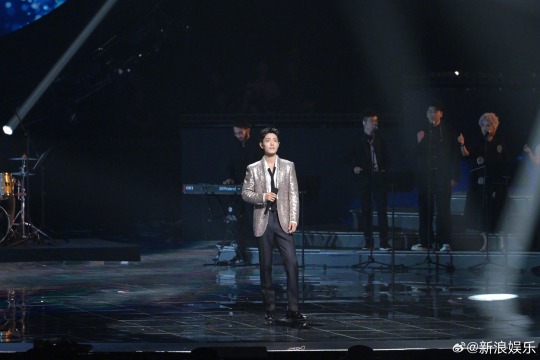



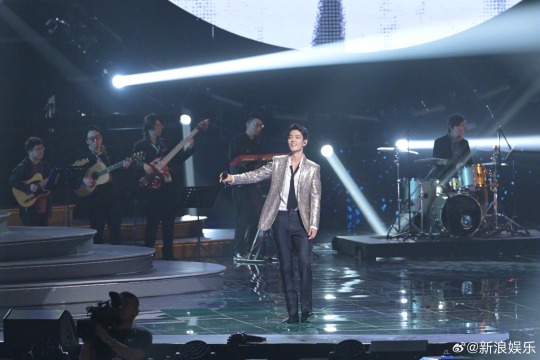

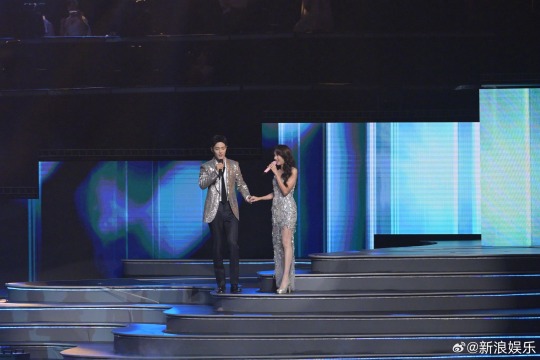
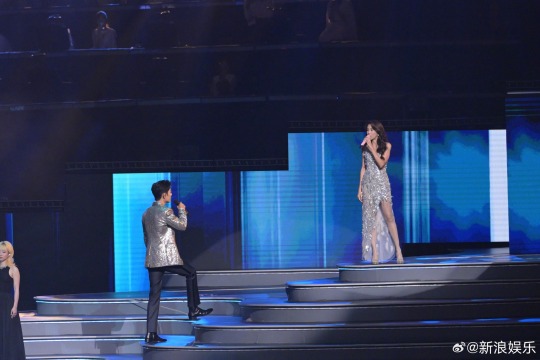
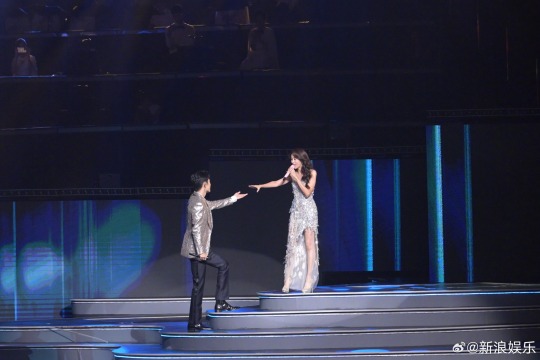

Sina Entertainment Weibo update 9.22.2024 Xiao Zhan and Karen Mok sang "So Many People in This World" together.
#xiao zhan#Xiao Zhan greater Bay Area film concert#Xiao Zhan and Karen Mok#two artists I like#wow just wow
9 notes
·
View notes
Text
Karen Mok and Xiao Zhan sang the theme song "Empty World" (HD)
The highly anticipated combination is here! @Karen莫文蔚and @X玖少年团肖战DAYTOY sang the theme song "Empty World" from "This World Is So Full of People" at the "Bay Area Rising Moon" 2024 Greater Bay Area Film and Music Gala. The world is in turmoil, but you and I remain the same~
8 notes
·
View notes
Text
SEOUL (Reuters) -South Korea's top court cast doubt on Thursday on frontrunner Lee Jae-myung's eligibility to run for the presidency, while the resignations of the prime minister and finance minister shook the interim government in place since December's martial law.
Education Minister Lee Ju-ho took over as acting president, the third since the martial law decree, barely a month before a snap election. The vote was called after the Constitutional Court removed former President Yoon Suk Yeol from office over his brief martial law attempt.
The election race was rocked by a Supreme Court ruling that could threaten the candidacy of former opposition party leader Lee Jae-myung, who has dominated all opinion polls.
The court overturned an earlier ruling that had cleared Lee, saying he had violated election law by publicly making "false statements" during his 2022 presidential bid. It sent the case back to the appeals court and ordered it to issue a sentence, which could bar Lee from running for office for up to five years.
South Korea has been led by a rotating cast of acting presidents since Yoon's impeachment on December 14, hampering efforts to steer Asia's fourth-largest economy through the choppy waters of U.S. tariffs.
Prime Minister Han Duck-soo, who has been serving as acting president, stepped down on Thursday ahead of an expected entry into the presidential race. Han is expected to declare his presidential run on Friday.
Han, 75, had initially lasted less than two weeks in the acting post and was himself impeached and suspended on December 27 after clashing with the opposition-led parliament by refusing to appoint three more justices to the Constitutional Court.
However, the court reinstated Han on March 24.
Finance Minister Choi Sang-mok had assumed the position of acting president while the cases of Yoon and Han were before the Constitutional Court.
Choi had been due to take over again after Han stepped down on Thursday but then abruptly resigned himself after parliament restarted impeachment proceedings against him for decisions he had made as acting president.
Choi, who has played a leading role in the response to U.S. tariffs, apologised in a statement for not being able to continue his work while the country faces severe economic conditions at home and abroad.
Education Minister Lee, the next in line by law to serve as the country's acting president, took the helm at midnight on Thursday. He ordered the military to stay on alert and vowed to run the government in a stable manner, local media reported.
Lee, 64, an economist and professor, also called on officials to support a fair presidential election on June 3.
PRESIDENTIAL BID IN DOUBT
Thursday's Supreme Court ruling could undermine Lee Jae-myung's credibility to be on the ballot and further deepen divisions in South Korea after months of political turmoil.
"The defendant's remarks... were judged to be false statements on matters important enough to ruin voters' accurate judgement on the defendant's eligibility for public office," said Chief Justice Jo Hee-de in the verdict.
While the Supreme Court moved unusually fast to consider Lee's election law case, it gave no deadline for the appeals court, which usually takes months to revisit rulings. It was unclear if a decision would come before the June 3 election.
Lee Jae-myung, who has denied any wrongdoing, said he had not expected the verdict to play out this way but pledged to follow the will of the people.
Shin Yul, a political science professor at Myongji University, said the ruling was a blow to Lee and the liberal-leaning Democratic Party.
"The appeals court will decide whether to disqualify him to run for office or not, but the Supreme Court in effect found him guilty... Moderate voters, 10% of the total, will be swayed by this news," he said.
A Gallup Korea survey on April 25 showed that Lee Jae-myung was favourite to win next month's election with 38%, while former head of the conservative People Power Party (PPP) Han Dong-hoon had 8% and Han Duck-soo was on 6%.
Lee Jae-myung is embroiled in several criminal trials, but the election law case has been in the spotlight because if the appeals court finalises a guilty verdict in line with the Supreme Court's decision, Lee would be barred from contesting elections for at least five years.
The Supreme Court, which can take a year or more to consider a case, made its decision on Thursday only about a month after prosecutors appealed the earlier court's decision to clear Lee.
The Democratic Party on Thursday criticised the top court's ruling and a spokesperson told reporters there was no chance of replacing Lee as a candidate.
($1 = 1,423.7500 won)
2 notes
·
View notes
Text
On Wednesday, President Yoon Suk-yeol became the first sitting South Korean president to be arrested by criminal investigators over charges of insurrection arising from his ill-fated declaration of martial law last month. The arrest brought an end to a dramatic weekslong standoff between the investigators and Yoon’s presidential security guards, which gripped the nation with fears that a violent clash might occur on the hilltop presidential compound in Yongsan, Seoul. But the country still remains stranded in largely uncharted territory—and with many possible constitutional clashes ahead.
On Jan. 3, investigators and police officers were forced to abandon their first attempt to arrest Yoon when they were blocked by a “human wall” of 200 presidential security guards and soldiers standing arm in arm to guard the compound. After a tense six-hour standoff and a series of scuffles, the helplessly outnumbered investigators retreated. Yoon remained barricaded in his fortress, shielded by barbed wire, buses, and bodyguards, and a brigade of hard-line loyalists planted across his cabinet.
As dawn broke on Wednesday, investigators returned with 3,200 police officers carrying ladders and wire cutters, backed by warnings from prosecutors that Yoon’s security guards would be arrested if they blocked the officials a second time. Officers scaled bus barricades blocking the entrance, while others hiked up a mountain trail at the back of the residence. This time, Yoon’s security guards put up no visible resistance. Following hours of negotiations, Yoon struck a deal with massed law enforcement officials to accept arrest.
In a video message released shortly afterward, Yoon said he had decided to submit to questioning to prevent “unsavory bloodshed.” But he insisted that the investigation was still illegal and that the “rule of law had completely collapsed.”
South Korea has been stranded in the uncharted territory of detaining a sitting, if suspended, president, wrestling with an unprecedented power vacuum. Although Yoon was impeached by the National Assembly last month, he has not yet been removed from office, as his impeachment is still under review by the Constitutional Court. This meant that Yoon remains entitled to his security detail, which, paradoxically, is also answerable to the acting president, Choi Sang-mok.
When investigators called on Choi to rein in Yoon’s security team, Choi, Finance Minister and veteran economic technocrat who ascended the ranks of Yoon’s cabinet as an avowed conservative loyalist, turned a blind eye. Choi’s chief of staff argued, in a letter to the investigators, that the acting president lacked the authority to command the Presidential Security Service (PSS). Even as the second arrest attempt drew close, and opposition lawmakers cried out to stand down the PSS, Choi remained unwilling to wade into the standoff.
As the arrest unfolded on Wednesday, Choi took an ostensibly neutralist stance by warning both the sides against violence. “This is a very important moment for maintaining order and the rule of law in South Korea,” he said in a statement. “We cannot tolerate any violence between government agencies for any purposes because it will irreparably damage the trust of our people and our international reputation.”
Choi’s parochial vision for his provisional leadership is seeded in politics, not law. While the South Korean Constitution empowers the acting president to exercise the authority of the president, it does not delineate the contours of his powers and duties. This constitutional silence, paired with the makeshift nature of the office and its fragile democratic credentials, is conventionally interpreted to entrust the acting president with all the powers of the presidency, with a caveat—“as appropriate, to maintain the status quo,” guided by a keen attunement to the political crisis born of the presidential vacancy. At the same time, the acting president bears an affirmative duty to uphold the rule of law, which may require exercising powers that challenge the existing state of affairs, creating something of a constitutional limbo.
Even so, the authority to command the executive’s security service to comply with a lawful arrest warrant falls squarely within the acting president’s jurisdiction, if not at the forefront of his duty. “Entrusted with all the powers of the presidency, the acting president inarguably has the authority to command the Presidential Security Service,” Kim Seon-taek, a constitutional scholar at Korea University School of Law, told South Korean daily Hankyoreh. “Choi’s refusal to command the Presidential Security Service is driven by political considerations, not by the law.”
As an unelected interim commander without a clear constitutional playbook to follow, Choi is in limbo. His powers are governed not by the constitution but by an embattled standoff between his domestic political agenda, partisan politics, and his lack of a popular mandate. “The inability or refusal of acting President Choi to call on the PSS to stand down is overdetermined [by] his own political inclinations, pressure from his party, pressure on the street, and a sense that the acting president’s mandate is limited by a reduced legitimacy to make grand decisions and gestures,” said Mason Richey, a political scientist at Hankuk University of Foreign Studies.
Choi’s democratic legitimacy is further weakened by the fact that he is the second acting president to take the helm after Prime Minister Han Duck-soo, who was impeached by opposition lawmakers after he refused to make the judicial appointments required for the Constitutional Court to review Yoon’s impeachment case.
But even if Choi had assumed the mantle of commander in chief, Yoon’s impromptu militia might not have heeded his command. “Although Yoon has been impeached by the National Assembly, he is undeniably the sitting president elected by the people and is receiving the corresponding security measures prescribed by law,” Park Jong-jun, the chief of the PSS and a longtime conservative stalwart who also served as deputy chief of conservative President Park Geun-hye’s security service, said in a televised address following the first arrest attempt. He defended his decision to fight against Yoon’s arrest warrant—which he called “mired in controversies over its legality”—as an allegiance to his duty to protect the president. “If my judgment on the matter is wrong, I am willing to bear any legal consequences,” he added. Park, charged with obstruction of justice, has since resigned from his post.
This marked the first time that a security chief had addressed the nation since South Korea’s dark age of military dictatorship. Park faces accusations of conspiring in Yoon’s failed self-coup, along with former Defense Minister Kim Yong-hyun, a longtime confidant of Yoon who led Yoon’s security services before being promoted to spearhead his martial law decree.
As security chief, Kim turned the agency into an army of acolytes poised to stand in Yoon’s last line of defense by hiring hard-line conservative loyalists with close personal connections to Yoon and his wife. In 2022, Kim controversially sought to militarize the agency with an amendment to the Presidential Security Service Act, which would grant the security chief the authority to command the military and police. After drawing fierce criticisms that the move was reminiscent of President Park Chung-hee’s authoritarian regime, the amendment was eventually repealed to authorize the security chief to “cooperate with the heads of relevant agencies.”
The PSS prides itself in “securing the president’s absolute safety as the reason for its existence and sacred duty.” Created in 1963 under Park Chung-hee, who rose to power by staging a coup against a democratically elected government, the agency is a relic of authoritarian rule. Park’s security chief, Park Jong-kyu, was nicknamed “Pistol Park” for brandishing his gun at anyone who got in President Park’s way. Park’s next security chief, Cha Ji-cheol, emerged as a powerful “second-in-command” wielding unchecked—and unconstitutional—authority over state affairs. During the Busan-Masan democratic uprisings, Cha infamously urged Park to crush the protestors with tanks and deployed air forces.
The security agency swelled into a militia that continued its legacy of violence under Park’s autocratic successor, President Chun Doo-hwan, who seized power after Park’s assassination in 1979. Chun’s security chief, Jang Se-dong, was a chief architect of Chun’s coup and co-conspirator of the massacre of thousands of protesters during the Gwangju uprising.
Since South Korea’s democratization in 1987, the PSS has waned in power, earning the nickname “shadow security” under a string of democratic presidents attuned to the echoes of its troubled history. When President Park Geun-hye, daughter of Park Chung-hee, took office, the agency’s power was revived, harking back to its authoritarian legacy.
But after revelations arose that the agency aided and abetted Park’s collusions with a shaman-like advisor—a sprawling corruption saga that ended in Park’s impeachment—her liberal successor, President Moon Jae-in, pledged to dismantle the agency and create an independent presidential security bureau under the police department. Lawmakers introduced bills to disband the agency, distraught by the remnants of political collusion between the agency and the president.
Following in the footsteps of his predecessors, Yoon’s security chief thrust himself into the president’s last line of defense. Shadows of the bizarre, twisted camaraderie between presidents and security chiefs—and their schemes of autocracy—still loom over the young democracy.
To end the legacy of militarized security forces, opposition lawmakers are pushing bills to disband the PSS and instead establish an independent presidential security bureau under the National Police Agency, which operates within the Ministry of the Interior and Safety. “As Yoon’s Presidential Security Service is dismantling the constitution and the laws and positioning itself as a private militia for insurrection, it no longer has a reason to exist,” said Park Chan-dae, floor leader of the Democratic Party.
In most of South Korea’s democratic allies, security organizations for heads of state operate as autonomous agencies under the police department, shielded from unchecked executive command. “Such structures allow the agency to be checked by the law and by other governmental powers. They prevent abuses of power,” said Han Seung-whoon, a professor of police administration at Dongshin University. “A security organization structured as an agency directly under the president takes on the characteristics of a private militia, which is seen only in underdeveloped or authoritarian regimes.”
With an impeached president clinging to power, security guards pledging allegiance, and an acting president sitting on the sidelines, the process of Yoon’s arrest only narrowly escaped descending into bloodshed on the hills of Yongsan. South Korea is going to emerge from this even more politically polarized and fractured than it was before, which is going to have some continuing long-term consequences on the stability of governance,” Richey said. Once again, South Korea faces a timeless challenge: to build a constitutional system resilient to autocracy, shielded from any collusions between presidents and security chiefs, or the complacency of an acting president.
In the book People Who Go to Work at the Blue House, published by the National Museum of Korean Contemporary History, Lee Seong-woo, a presidential security officer who guarded six South Korean presidents from 1987 to 2012, writes, “It’s important to remember that a presidential security officer guards the president as a public figure, not the president as a person. Never forget that.” It’s time for South Korea to build a new line of defense against autocracy.
3 notes
·
View notes
Text
Agence France-Presse at The Guardian:
South Korea’s opposition said on Thursday it had filed an impeachment motion against the acting president, Han Duck-soo, in an escalating row over the composition of the constitutional court which will decide whether to remove his predecessor from office. South Korea became mired in a political crisis when President Yoon Suk Yeol, currently suspended, declared martial law on 3 December. Yoon was stripped of his duties by parliament on 14 December over the dramatic declaration, but a constitutional court ruling upholding the decision is necessary to complete the impeachment process. The court is however currently short of three judges. While it can go ahead with its six members on the bench, a single dissenting vote would reinstate Yoon. The opposition wants Han to approve three more nominees to fill the nine-member bench, something that he has so far refused to do, essentially leaving both sides in a deadlock. The opposition Democratic party therefore says the acting president should be impeached too. “We have filed the motion ... and will report it to the plenary session today,” MP Park Sung-joon said of the action against Han. “We will put it to a vote tomorrow.” Han’s refusal to formally appoint the three judges proves that he “does not have the will or qualification to uphold the constitution”, the Democratic party’s floor leader, Park Chan-dae, told reporters. Han has said that he would certify the judges’ appointments only if his ruling People Power party (PPP) and the opposition reach a compromise on the nominees.
[...] If the opposition passes the impeachment motion against Han in Friday’s vote, it would mark the first time democratic South Korea has impeached an acting president. In Han’s place, the finance minister, Choi Sang-mok, would step in as acting president.
South Korea could be on the verge of having two Presidents impeached within less than a month.
11 notes
·
View notes
Text
Thaiphoon Menu
Soups:
01. Tom Kha Gai (spicy sour coconut soup)
02. Khao Soi (egg noodles in coconut milk-based curry broth)
03. Tom Yum Goong (thai seafood prawn soup)
04. Wonton Soup (mushroom soup)
Meat:
05. Nam Tok (sliced beef salad)
06. Pad Kra Pao (holy basil stir-fry)
07. Panang Curry Beef (classic thai curry with rich sauce)
08. Sai Krok Isan (fermented pork sausage)
09. Thai Chicken Satay (marinated chicken skewers, peanuts)
10. Khao Mu Krop (crispy pork on rice)
11. Khao Mu Krop Mu Daeng (mixed crispy pork and red roast pork on rice)
Fish:
12. Pla Pao (salt-grilled fish with lemongrass notes)
13. Hoi Thod (crispy oyster omelettes)
14. Pu Ob Woonsen (baked crab and glass noodles)
15. Hor Mok Pla (steamed fish curry)
16. Tod Mun Pla (thai fishcakes)
Vegetarian:
17. Thai Tofu Larb (minced tofu salad with lemongrass and chili)
18. Pad Pak Ruam (mixed vegetable stir-fry)
19. Som Tum Pla Ra (umami thai green papaya salad)
20. Gui Chai Tod (crispy garlic chive dumplings)
21. Pad Pak Boong (stir fried water spinach)
22. Pad Phuk Tong (stir fried pumpkin)
23. Gang Jay (curry with tofu)
Drinks:
non-alcoholic & tea
24. Nom Yen (iced milk with sala syrup)
25. Mamuang Pan (Mango Coconut Juice)
26. Pandan Juice (Pandan Extract + Syrup)
27. Oliang (thai iced coffee)
28. Nam Manao (thai lemonade)
29. Water (sparkling or still)
30. Cha Yen (thai ice tea, milk)
31. An-Chan (butterfly pea tea)
32. Cha Dam (black tea)
alcoholic
33. Thai-pirinha (Caipirinha with Mekhong)
34. Sang Som (rum)
35. Singha (sparkling beer)
36. Chang (Lager beer)
37. Leo (light, refreshing beer)
38. Ya Dong (herbal liquor)
39. Sato (sweet rice wine)
40. usual cocktails
2 notes
·
View notes
Text
To finish off the year, here's my TOP 23 Ships from dramas I watched in 2023
1. Kim Doo Shik ♥ Lee Mi Hyun
Moving
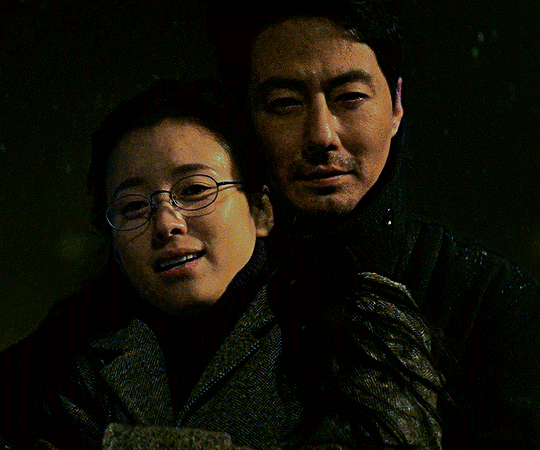
2. Cha Jin Woo ♥ Jung Mo Eun
Tell Me That You Love Me

3. Seo Do Guk ♥ Han Yi Joo
Perfect Marriage Revenge
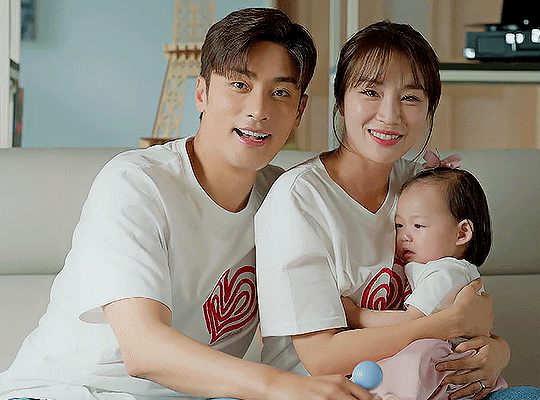
4. Xin Qi ♥ Min Hui
The Love You Give Me (C-Drama)
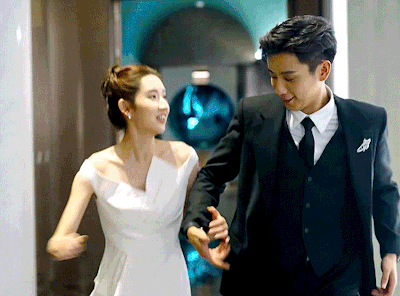
5. Choi Kang Ho ♥ Lee Mi Joo
The Good Bad Mother
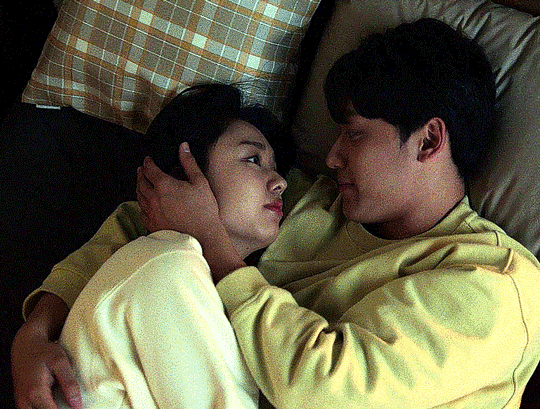
6. Dongfang Qincang ♥ Xiao Lanhua
Love Between Fairy and Devil (C-Drama)
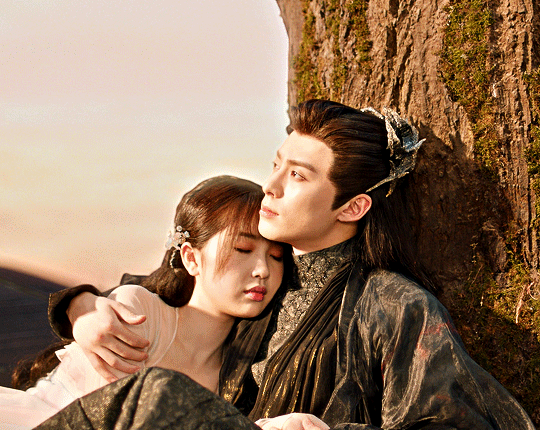
7. Jung Ki Ho ♥ Seo Mok Ha
Castaway Diva

8. Moon Jang Yeol ♥ Bong Ye Bun
Behind Your Touch

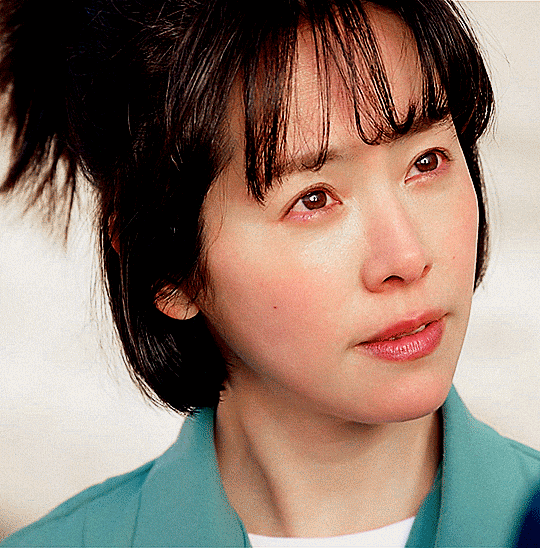
9. Gu Won ♥ Cheon Sa Rang
King the Land

10. Cho Yong Pil ♥ Cho Sam Dal
Welcome to Samdalri

11. Yoo So Joon ♥ Song Ma Rin
Tomorrow With You
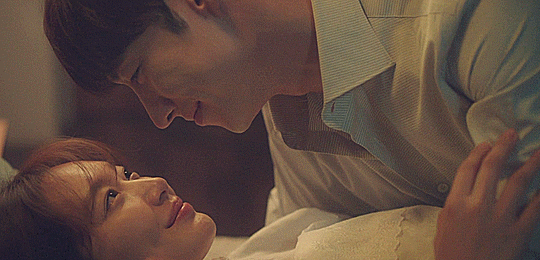
12. Kang Hee Shik ♥ Kang Nam Soon
Strong Girl Namsoon

13. Dong Go Yun ♥ Jung Da Eun
Daily Dose of Sunshine

14. Gong Tae Gyeong ♥ Oh Yeon Doo
The Real Has Come
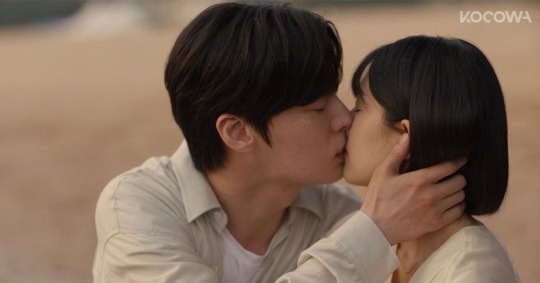
15. Jang Seon Gyeol ♥ Gil Oh Sol
Clean With Passion for Now

16. Cha Min ♥ Cho Se Yeon
Abyss
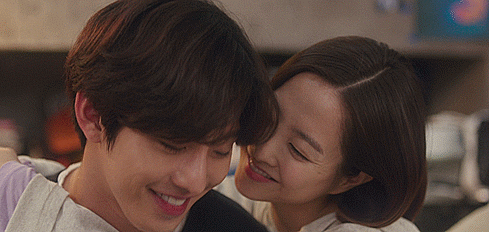
17. Heo Joon Jae ♥ Shim Cheong
Legend of the Blue Sea
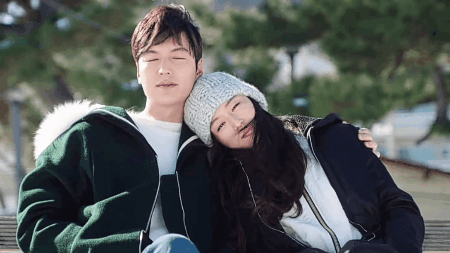
18. Kim Tae Hee ♥ Baek Dong Joo
May I Help You
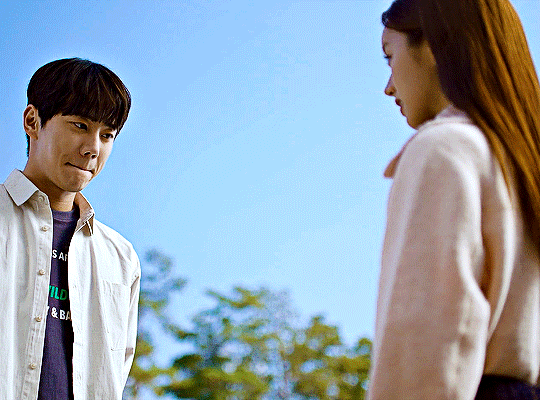
19. Jung Gu Won ♥ Do Do Hee
My Demon

20. Nam Si Heon ♥ Han Jun Hee
A Time Called You

21. Jang Tae Sang ♥ Yoon Chae Ok
Gyeongseong Creature
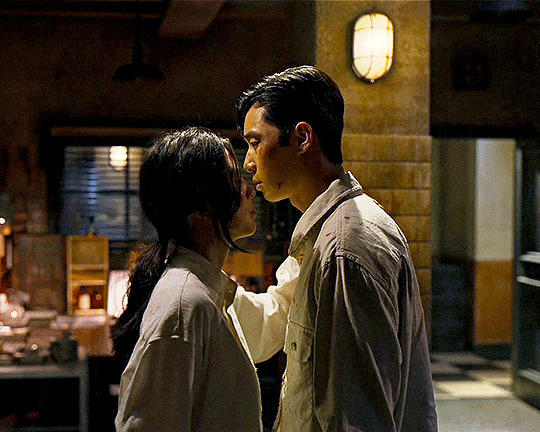
22. Lee Kang ♥ Moon Cha Young
Chocolate
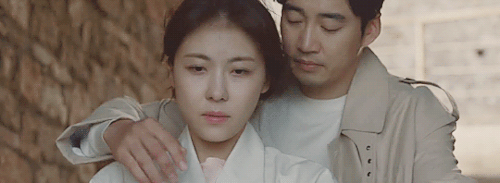
23. Cha Eun Ho ♥ Kang Dan Hee
Romance is a Bonus Book
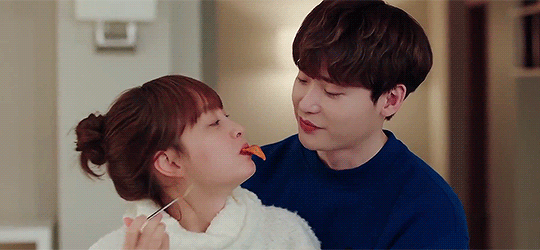
40 notes
·
View notes
Text
Korean Artists from the 20th Century:
In my series The History of Korean Male Groups, i have briefly mentioned numerous artists, both male and female, in Part 2, Part 3, Part 4, Part 5, and Part 7 with more being mentioned in Part 8 that will be coming soon.
As there are many artists that i have mentioned in my history series (linked above) and shown on my Master List, i wanted to talk about and explore the lives of Korean artists individually from the 20th century. This list will be updated when a new episode is published.
Male Artists:
Episode 1 - Kim In-sik - (21/09/2024)
Episode 2 - Lee Eun-sang - (21/09/2024)
Episode 3 - Kim Saeng-ryeo - (11/11/2024)
Episode 3.5 - Kim Saeng-ryeo (Continuation) - (16/11/2024)
Episode 4 - Lee Im-beom - Put On Hold!
Female Artists:
Episode 1 - Kim So-hee - (05/10/2024)
Episode 2 - Jeon Hae-nam (Korean Tap Dancer) - (13/10/2024)
Episode 3 - Yun Sim-deok (Rewrite) - (19/10/2024)
Episode 3.5 - Yun Sim-deok (Continuation) - (14/11/2024)
Episode 4 - Kim Nan-ok - (22/01/2025)
Episode 5 - Kim Chae-woon - (23/01/2025)
Episode 6 - Kim Ok-jin - (26/01/2025)
Episode 7 - Kim Wol-seon - (27/01/2025)
Episode 8 - Kim Yeon Wol - (27/01/2025)
Episode 9 - Lim Chun-hong - (08/02/2025)
Episode 10 - Lee Hwa-seon - (11/02/2025)
Episode 11 - Lee So-hee - (14/02/2025)
Episode 12 - Lee Chae-seon - (14/02/2025)
Episode 13 - Lee Ok-ran - (15/02/2025)
Episode 14 - No Hwa-wol - (26/06/2025)
Episode 15 - Lee Jeong-suk - In the Works!
Other notable Female Artists:
Part 1 Oh San-wol - (11/07/2024)
Part 2 Jang Yeon-hong (1) - (14/07/2024)
Part 3 Jang Yeon-hong (2) - (16/07/2024)
Part 4 Lee Nan-hyang - Put On Hold!
------------------------------------------------------
This is a newly compiled list of Korean artists, including actors, actresses, film directors, painters, and writers. As the list is still being developed, I will refrain from posting about any specific Korean artists at this time.
Korean Actors & Actresses:
Female:
Lee Wol-hwa - Coming Soon!
Choi Eun-hee - Coming Soon!
Male:
Na Woon-gyu - Coming Soon!
Korean Film Directors:
Female:
Nothing Yet!
Male:
Kim Ki-young - Coming Soon!
Yu Hyun-mok - Coming Soon!
Shin Sang-ok - Coming Soon!
Lee Yong-min - Coming Soon!
Artists Yet Mentioned:
These are the list of some artists that i have not yet talked about individually yet in this series but will sometime in the future. This list will constantly change and people will be added and moved, if anyone has any recommendations of any Korean artists that you know from the 20th century please comment down below. ;)
Male Artists:
Lee In Beom - Coming Soon!
Kim Seong Tae - Coming Soon!
Jeong Jeong Ryeol - Coming Soon!
Im Bang Ul - Coming Soon!
Han Seong Jun - Coming Soon!
Kim Min Ik - Coming Soon!
Baek Seol Hee - Coming Soon!
Choi Nam Seon - Coming Soon!
Hyun Je Myeong - Coming Soon!
Lim Dong Hyeok - Coming Soon!
Female Artists:
Park Nok-ju - Coming Soon!
Kim Ok-sim - Coming Soon!
Lee Hwa-jung-seon - Coming Soon!
Lee Ari-su (Rewrite - Coming Soon!) - (05/03/2024)
----------------------------------------------------
A list of Korean artists that i have and will talk about, and any recommendations for future episodes. Enjoy ;) @anemoiawithatouchofobsession
6 notes
·
View notes